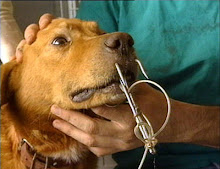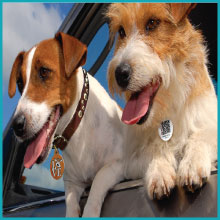I would have thought that most of the money that was donated to the Humane Society of the United States would have went to help our local animal shelters, but after reading this article it has become apparent that I was wrong too.
So where does the money go that people donate to the cause?
Can somebody tell us?
Nationwide Poll: Seven Out of Ten Americans Wrongly Believe the Humane Society of the United States is a Pet-Shelter "Umbrella Group" Consumer Group Reminds Americans that Less than One Percent of Donations to HSUS Benefit Local Pet Shelters
Seventy-one percent of Americans questioned in a new opinion poll wrongly believe the Humane Society of the United States (HSUS) is an "umbrella group" for America's local humane societies. Sixty-three percent incorrectly think their local "humane society" is affiliated with HSUS. And fifty-nine percent falsely believe HSUS "contributes most of its money" to local organizations that care for cats and dogs.
The poll, which sampled the opinions of 1,008 Americans, was commissioned by the nonprofit Center for Consumer Freedom (CCF) and conducted by Opinion Research Corporation (ORC) of Princeton, New Jersey.
"These numbers indicate that Americans don't really know what the Humane Society of the United States is all about," said CCF Director of Research David Martosko. "HSUS intentionally uses those sad dogs and cats in its TV infomercials as props in an animal rights fundraising shell game. Meanwhile, thousands of American pet shelters are underfunded and struggling." Martosko blogs about HSUS at www.HumaneWatch.org.
According to the federal income tax return filed by HSUS for the tax year 2008, less than one-half of one percent (0.5%) of the organization's budget consisted of grants to hands-on pet shelters. HSUS does not run a single shelter for dogs or cats anywhere, and it is not affiliated with any local "humane society" organizations.
Martosko continued: "This poll indicates that most Americans think HSUS is a worthy charity. But very few Americans understand what HSUS really is—a super-rich lobbying group that puts more money into its executive pensions than in the hands of local humane societies."
Survey Methodology
The survey of 1,008 adults nationwide was conducted by telephone between February 25 and February 28, 2010 by Opinion Research Corporation. The margin of error is plus or minus three percentage points.
Questions:
I'm going to read you the names of several nonprofit organizations. For each one, please tell me if you are very familiar, somewhat familiar or totally unfamiliar with the organization.
The Humane Society of the United States: 79% familiar ("very"/"somewhat" net)
I'm going to read you several statements. For each one, please tell me if you think the statement is true or false.
71% "TRUE": The Humane Society of the United States is an umbrella group that represents thousands of local humane societies all across America.
63% "TRUE": My local humane society or pet shelter is AFFILIATED with the Humane Society of the United States.
59% "TRUE": The Humane Society of the United States contributes most of its money to local organizations that care for dogs and cats.
48% "TRUE": My local humane society or pet shelter receives financial support from the Humane Society of the United States.
(Tax records filed by HSUS show that all four statements are false.)
To learn more about the Humane Society of the United States, visit
www.HumaneWatch.org. To arrange an interview, call Allison Miller at 202-463-7112.
The Center for Consumer Freedom is a nonprofit watchdog organization that informs the public about the activities of tax-exempt activist groups. It is supported by American consumers, business organizations, and foundations.





